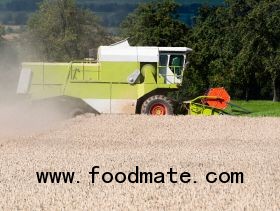 rding to a new report from the Federal Ministry of Food, Agriculture and Consumer Protection (BMELV) this has resulted in the loss of about 820,000 tonnes over the last three years.
rding to a new report from the Federal Ministry of Food, Agriculture and Consumer Protection (BMELV) this has resulted in the loss of about 820,000 tonnes over the last three years.The joint investigation of the Thünen Institute, the Max Rubner Institute and Julius Kühn Institute looking at the losses of crops post harvest said that the main causes for the losses are particular pests and diseases and poor storage, which leads to spoilage.
The report adds that another key factor for cereal crop losses has been the weather, which has created large differences in the amount of loss over the years.
In 2011, the report says the harvest estimates were missed by nearly 10 per cent because of adverse weather conditions. These conditions impacted not only the quantity of the harvest but also the quality, which determine the future use of the crop.
“So a farmer cannot say exactly at the beginning of the season how many tonnes are going to be harvested nor whether the crop will be able to be processed as food or animal feed,” the BMELV said.
Too many unpredictable factors such as weather conditions during the growing season or pest infestation will affect the outcome of crop.
There is also consumer behaviour to be taken into account, which will affect the processors’ demand.
The German agriculture ministry has now said that as good storage conditions are paramount for ensuring less spoilage of crops, the government is to support measures that will make the most of storage facilities.
The Joint Task on the Improvement of Agricultural Structures and Coastal Protection (GAK) is backing investment and companies in the areas of processing and marketing including the development of air-conditioned building for fruit and vegetable storage.
The ministry added that while most of the spoilage in industrialised countries occurs at the processor or wholesaler stage, in developing and emerging countries the problem is between harvest and the market.
The report shows that almost 40 per cent of all food is lost in developing countries on the way to the consumer, through inadequate storage, packaging and poor transport and refrigeration. The region worst affected is Saharan Africa.
Now the BMELV is working with the Food and Agriculture Organisation of the United Nations to invest in agriculture in developing countries, funding projects to enhance food security.
The BMELV added that it is also adding scientific support to developing countries to help reduce food losses.
The Thünen Institute is investigating how climate change impacts pests such as weeds or insects and with the cooperation of the international database APHLIS (African Postharvest Losses Information System the Federal Agency for Agriculture and Food (BLE) is helping to generate reliable data on post-harvest losses.





